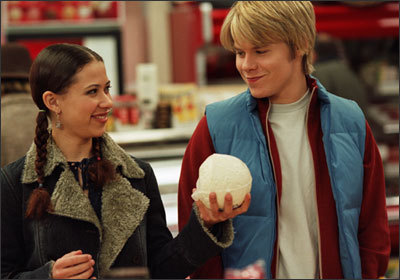Each time I hear someone complain, "Well, black people say the N-word. Why can't I say the N-word too?" It always sounds to me like, "You engage in self-harm. Why can't I cut you too?" Unfortunately not enough of my fellow AAs hear this as well. Instead, too many of us view the N-word as some sort of privileged that we can say simply because we are black. In any case, what caused me to think about this today was a quite shocking episode of America's Supernanny, which you can watch in full here. The subjects of the episode are an family of 10 kids (with two more on the way), the Carzells. Needless to say, they are out of control, which is rather remarkable in itself. However, their behavior does not compare to the racism that quickly spews from the children's mouth toward their 9 year-old sister Nevada. (This conversation starts at 7:30)
"That girl got something going on with her skin," Desja says, "She is dark!" All Nevada's sisters all begin to laugh at her. "You're the darkest person [in the room], so get out!"
Her brother shouts, "She took a shower yesterday, and she's still dark!"
"That's why no one ever knows where you are," Desja continues, "and every time we're at the store, you always get lost, because you're so dark."
"You is burt! You look like a gorilla."
Later Deborah Tillman (the Supernanny) confronts Desja about why she attacks her sister for being dark.
"Nevada was talking about everyone else," she says. "My mom was like, 'Nevada stop talking 'cause you're the darkest in this family."
 This attitude is perpetuated throughout our community. Often, I see AAs highlighting racism coming from the outside. However, the outrage that comes when racism comes from someone who is not black is absent when a fellow AA is racist, which is why we have this absurd notion that it is okay for a fellow AA to say the n-word. "Oh, a Caucasian can't cut us, but we can hurt ourselves." As long as this attitude persists, with or without systematic racism, we will always keep ourselves down. It will only be changed when we start holding a AA who is racist accountable, just as we would if a Caucasian were to us. I don't care if you're black, you do not have a pass to be racist.
This attitude is perpetuated throughout our community. Often, I see AAs highlighting racism coming from the outside. However, the outrage that comes when racism comes from someone who is not black is absent when a fellow AA is racist, which is why we have this absurd notion that it is okay for a fellow AA to say the n-word. "Oh, a Caucasian can't cut us, but we can hurt ourselves." As long as this attitude persists, with or without systematic racism, we will always keep ourselves down. It will only be changed when we start holding a AA who is racist accountable, just as we would if a Caucasian were to us. I don't care if you're black, you do not have a pass to be racist.













 Of course, there are several things wrong with this comic, but what I'm getting at is how Muslims are portrayed as angry, violent, Jesus-haters.
Of course, there are several things wrong with this comic, but what I'm getting at is how Muslims are portrayed as angry, violent, Jesus-haters.



